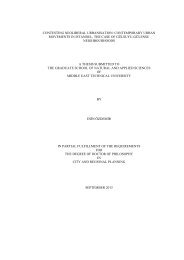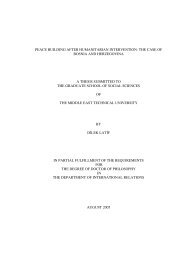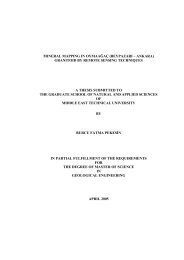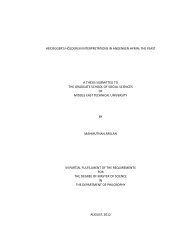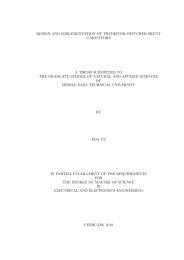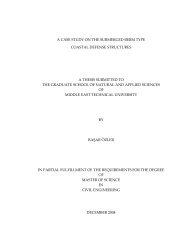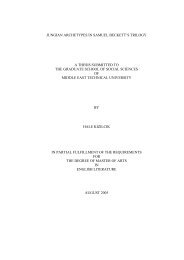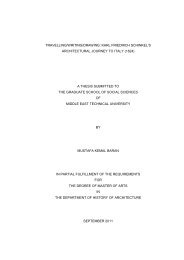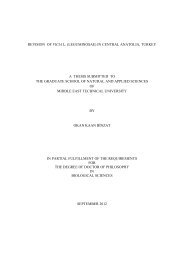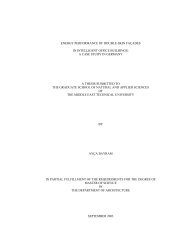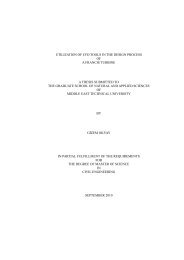View Original - Middle East Technical University
View Original - Middle East Technical University
View Original - Middle East Technical University
You also want an ePaper? Increase the reach of your titles
YUMPU automatically turns print PDFs into web optimized ePapers that Google loves.
foundations in economic analysis, Parisian theory even in its value-theoretical<br />
category does not have a theory of crisis that is inwardly regulationist but still is very<br />
much a theory of capitalist crisis; and can even rehearse certain Marxian provisos in<br />
its price-theoretical category. A study of regulation theory must then touch upon –<br />
does this heuristic procedure of more-than-one abstract foundation have any<br />
antithetical consequences for a theory of capitalist régulation, or is this ab initio a<br />
contradiction of the very middle-range method of regulationist research?<br />
Third and fourth chapters are on Boyer and Jessop. Boyer argues for a ‘theory of<br />
economic institutions’ infléchissement of regulation theory. Latter’s five institutional<br />
forms are increasingly heuristic categories for the comparative historical research on<br />
capitalism(s), the chief argument of which is that ‘not only could the modes of<br />
regulation differ for a particular kind of growth regime, but several such regimes<br />
relied on varying types of institutional architecture’(Boyer 2005:515) and that ‘the<br />
emergence of institutional forms able to release production potentials is a historical<br />
contingeny’(Grahl and Teague 2000:162). This institutionalist and society-wide<br />
analysis of comparative capitalist history however is not a ‘théorie locale’(Perkmann<br />
1996) in Boyer; that is, the understanding of institutional forms cannot be concretist.<br />
Boyer indeed excogitates the concepts of ‘institutional hierarchy’ and institutional<br />
complementarity’ for a ‘théorie générale’ of capitalist institutionalisation in and<br />
through the changing structures of governance within an always socially embedded<br />
market economy and not for a localistic theory of particular economic regimes.<br />
For Jessop as well, the regulation theory is chiefly about the institutedness of<br />
economies. However, unlike Karl Polanyi who ‘depicts a two-step movement from<br />
unregulated to regulated capitalism, the RA describes a crisis-mediated movement<br />
from one regularised regime to another, each with its own dynamic and crisis-<br />
tendencies’(Jessop 2001:217). Still Polanyian sociology, regulation theory and<br />
Luhmann’s autopoeitic systems theory analyse the forms of embeddedness in<br />
economies; there are three such forms –social, institutional and societal<br />
embeddedness. In fact, Jessop’s ‘integral economic’ infléchissement of regulation<br />
8



